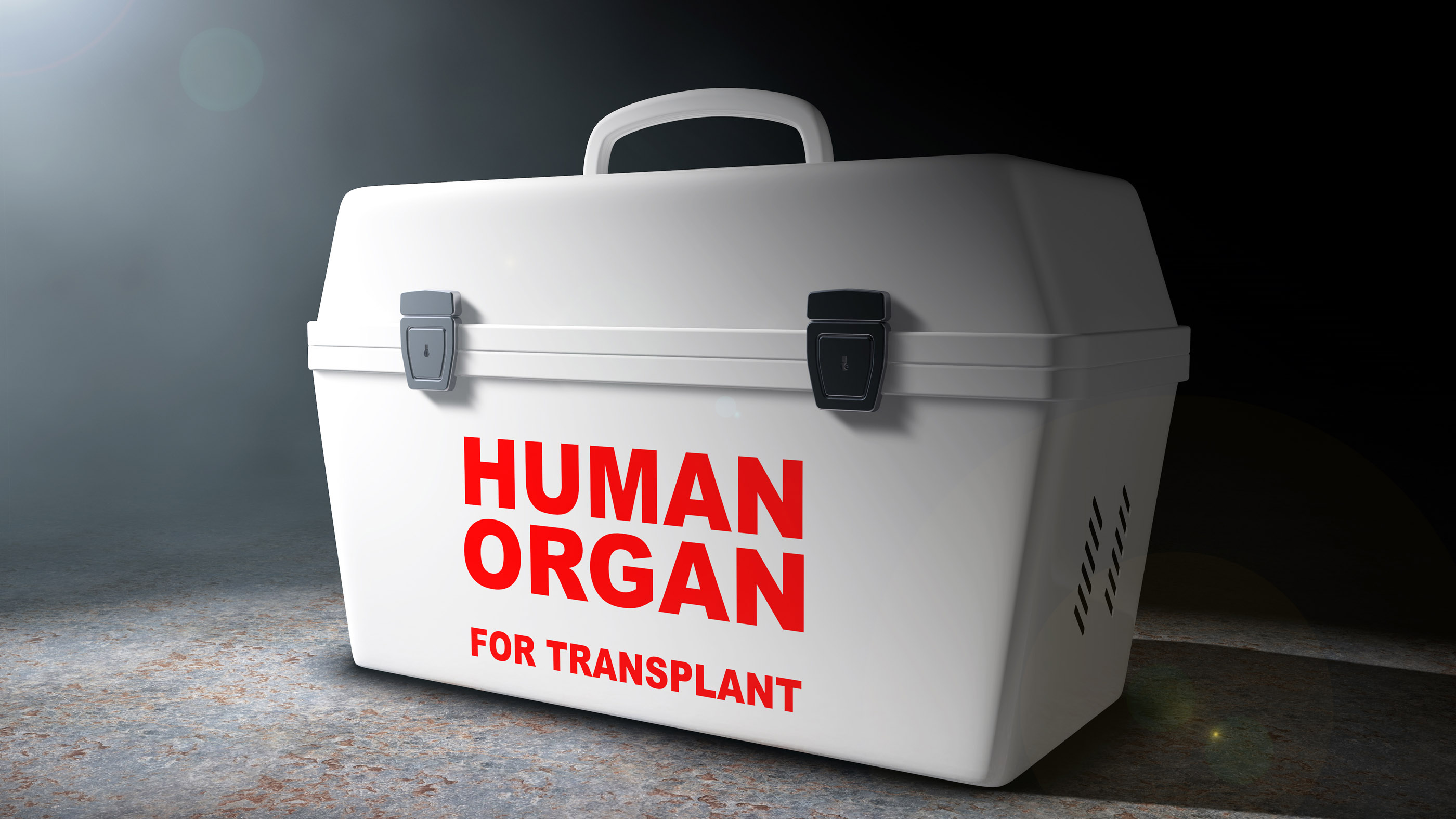What happens to your body when you're an organ donor?

Get the world’s most fascinating discoveries delivered straight to your inbox.
You are now subscribed
Your newsletter sign-up was successful
Want to add more newsletters?

Delivered Daily
Daily Newsletter
Sign up for the latest discoveries, groundbreaking research and fascinating breakthroughs that impact you and the wider world direct to your inbox.

Once a week
Life's Little Mysteries
Feed your curiosity with an exclusive mystery every week, solved with science and delivered direct to your inbox before it's seen anywhere else.

Once a week
How It Works
Sign up to our free science & technology newsletter for your weekly fix of fascinating articles, quick quizzes, amazing images, and more

Delivered daily
Space.com Newsletter
Breaking space news, the latest updates on rocket launches, skywatching events and more!

Once a month
Watch This Space
Sign up to our monthly entertainment newsletter to keep up with all our coverage of the latest sci-fi and space movies, tv shows, games and books.

Once a week
Night Sky This Week
Discover this week's must-see night sky events, moon phases, and stunning astrophotos. Sign up for our skywatching newsletter and explore the universe with us!
Join the club
Get full access to premium articles, exclusive features and a growing list of member rewards.
With organ donation, the death of one person can lead to the survival of many others. But when a donor dies, how do doctors save their organs for transplantation?
"In order to be an organ donor, you have to be in a hospital, on a ventilator, and have some type of neurologically devastating injury," said Heather Mekesa, the Chief Operations Officer of Lifebanc, Northeast Ohio's organ procurement organization.
There are two ways that this can happen: brain death and cardiac death. Cardiac death occurs when the patient has such severe brain damage that they would never make a full recovery. This damage can be to different parts of the brain. They may have a small amount of brain functionality, but the physician determines that they will never be able to recover. The donor is only kept alive by a ventilator, which their family may choose to remove them from. This person would be considered legally dead when their heart stops beating.
Related: How long can organs stay outside the body before being transplanted?
Most donated organs come from cases of brain death, in which the donor has no brain function, according to a 2020 study in the journal BMJ Open. This patient has irreversible loss of function of all regions of the brain, including the brain stem. A doctor diagnoses a person as "brain dead" when that patient is in a coma, has no brain stem reflexes, and fails an apnea test that serves to show if all brain stem function has been lost. A person who is brain dead is legally dead, even if they are still breathing with a ventilator. The physician, not the organ transplant team, makes that call.
While the donor's body is kept alive through life support, the organ procurement team tests whether their organs are safe for transplantation. If the donor has cancer or an infection such as COVID-19, their organs may not be usable, but not all diseases prevent organs from being used. For example, an HIV-positive donor can donate to an HIV-positive recipient. "They are transplanting organs on a regular basis that are hepatitis A-, B-, C- positive," Mekesa added.
Routine blood tests can reveal whether organs such as the liver and kidneys are healthy. The organ procurement team sometimes inspects the donor's heart for damage or blockage by sticking a thin tube into an artery or vein and threading it through their blood vessels to the heart. The team can also use a chest X-ray to evaluate the lungs for size, infection, or signs of disease. They may do further testing by sticking a thin tube into the lungs to further evaluate infection and determine if antibiotics are needed. Brains are never transplanted, but all other organs can be donated in the case of brain death; in the case of cardiac death, the heart is likely too damaged to donate, according to the 2020 study.
Get the world’s most fascinating discoveries delivered straight to your inbox.
After testing the organs, the organ procurement team finds and confirms recipient matches from the national transplant waiting list. The recipient's surgeons set up a time to meet and fly to the donor. Depending on how many organs are being donated, "you might be organizing surgeons from three to four states," Mekesa told Live Science.
In the case of brain death, the doctors start to recover the organs by clamping the circulatory system to stop the ventilator from pumping blood around the body. In the case of cardiac death, they remove the ventilator and wait until the heart stops beating, which can take anywhere from about a half hour to two hours, then an additional five minutes to ensure the donor's heart doesn't spontaneously restart, Mekesa said. The surgeons may decide not to recover the organs if it takes too long for the heart to stop and the other organs begin to die. For both types of organ donors, the surgeons then drain the donor's organs of blood, refill them with a cold preservation solution, and remove the organs.
The surgeons fly the organs back to the recipients and begin the transplantation. They must act quickly; the heart and lungs can last 4 to 6 hours outside the body, the pancreas 12 to 24 hours, the liver up to 24 hours and the kidneys 48 to 72 hours, according to the Health Resources and Services Administration (HRSA). Meanwhile, the donor's body, with organs removed, is prepared for a funeral or other memorial service.
Organ donation saves lives, but not enough. Each day, 20 people die waiting for a transplant in the U.S., according to the HRSA. Although 90% of adults in the country support organ donation, only 60% are registered donors. Even those who have signed up may run into issues with donation if they haven't made their wishes clear to their family. "The biggest challenge that we face when we meet with families is them saying, 'I don't know what they want to do. We never had this conversation,'" Mekesa said.
Originally published on Live Science.

Tyler Santora is a freelance science and health journalist based out of Colorado. They write for publications such as Scientific American, Nature Medicine, Medscape, Undark, Popular Science, Audubon magazine, and many more. Previously, Tyler was the health and science Editor for Fatherly. They graduated from Oberlin College with a bachelor's degree in biology and New York University with a master's in science journalism.
 Live Science Plus
Live Science Plus











